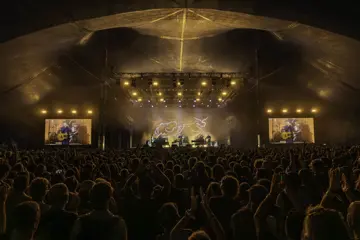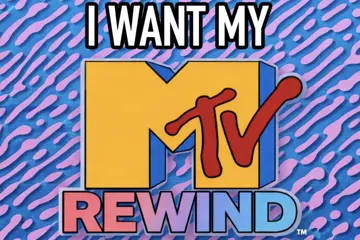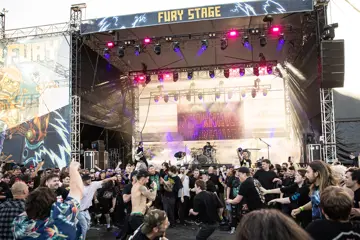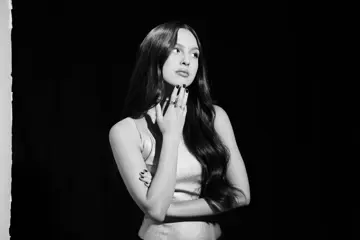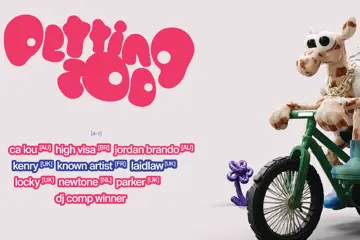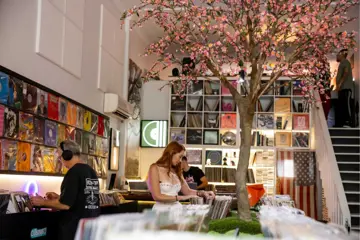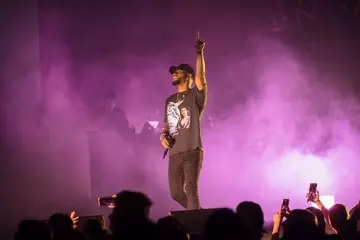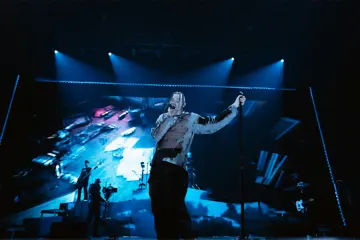"From my perception...it was very much as I remembered what the beauty of Australian music was about," Gardner says upon returning home to Australia after 25 years.
"More bands were going overseas, there seemed to be a real rebirth, I guess, of music, of musicians. I don't think we ever disappear. There's always someone making music somewhere. As I did get back into it again, slowly but surely, the scene to me was exceptionally healthy and it was building. You see bands like Tame Impala going overseas, doing extremely well."
Gardner, who currently reps The Brian Jonestown Massacre, says the world in a music-sense hasn't changed, but the "delivery system has changed".
"Bands can get on planes, go overseas, get their visas and do whatever they need to do."
"With the demise of the major label system, independent artists have gained a really large share of what's going on and I don't think bands are in any way kind of like, 'Oh we need this massive label otherwise we can't survive.' That's been healthy and it's worked in America but from what I've seen in here in Australia, it is massive.
"I think there was always this constant discussion of, 'Does our isolation make a difference?' I think it did in the early days of the business but now I don't think it does because of that ability to get people to see a band and appreciate that band."
He cites popular '80s rock band Men At Work who he worked with years ago as a perfect example of musicians gaining exposure overseas.
"If you look at a band like that, getting a release of their record, which eventually became a number one single and album, was a difficult process to get anyone to pay attention to the band and its music within America. When it did, it exploded. But I don't think we have that problem anymore. Bands can get on planes, go overseas, get their visas and do whatever they need to do."
Gardner has great faith in the future of Australian music, due to the immense talent oflocal bands.
Don't miss a beat with our FREE daily newsletter
"There's so many good bands. With musicians, everyone goes to the big city because you're not going to get discovered in a small country town that, as I always used to say, is a 'great place to die and a great place to raise your kids'.
"Coming back down to Melbourne, it was amazing to find the amount of young bands here that were performing and playing. It reminded me a lot about what Melbourne was like back in the day when Melbourne was thriving with new music. It was good and it still is."
"The grand idea of the major big travelling festival, that we're all going to, you know, run around the world, run around Australia… is over."
Having co-founded Lollapalooza in 1991, Gardner concedes that festivals throughout the world and indeed Australia are changing rapidly, especially given the fact that major festivals such as Big Day Out and Future Music have been axed in recent years.
"I think that the grand idea of the major big travelling festival, that we're all going to, you know, run around the world, run around Australia… is over," he says.
"If you look at the festivals that are out there and doing well, it seems to be that kids are going to the boutique festivals more than anything. You don't have to be out in the sun for ten hours to enjoy yourself. I think the boutique festivals will do very, very well."
Recalling one of his own personal favourite festival moments, Gardner tells of an incident that occurred some years ago at Big Day Out while he was managing Queens Of The Stone Age.
"The band were due to go on, but it was the afternoon so it was not a case of a major band at that particular point. [Former bassist Nick Oliveri] comes over to me and goes 'It's really hot here, isn't it?' and I go, 'Yeah, it's boiling' and he went, 'Can you find out if I can just play naked. I don't want to get busted by the cops or anything.'
"So I went out to the security guys...and they're thinking he's probably just going to take his shirt off or something like that. So we're going to go on stage and Nick strips down to his bass… and then we walk up on stage and the first row of kids that were standing there went 'Oh my God.' Nick is very well endowed and it was shock horror. I was on the side of the stage thinking 'We're going to get arrested.' No one cared! It was like, 'Yes, Australia. No one gives a shit.'"




